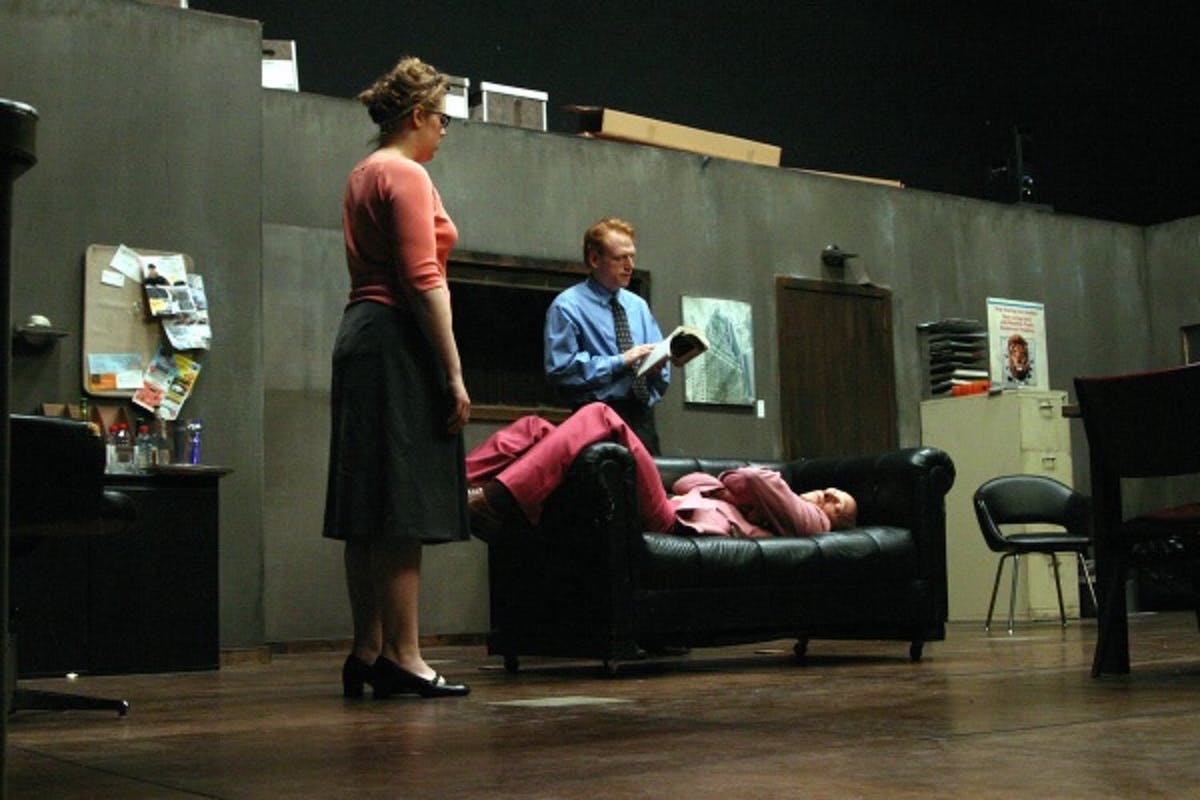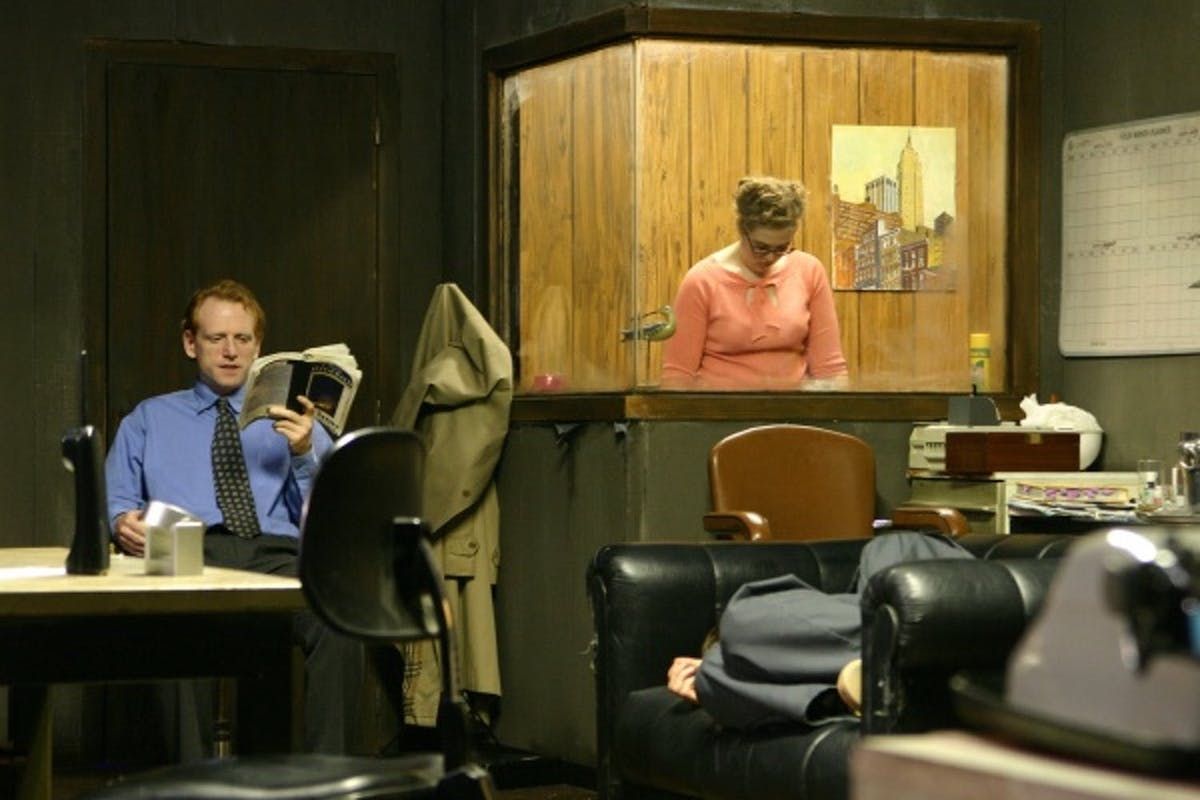The French philosopher Alain Badiou once remarked that, to create a theatre performance an actor could in principle just sit behind a desk and read his text. In fact, a desk and a chair aren't even necessary.
"Gatz", by New York based theatre company Elevator Repair Service, is the only theatre performance that I know in which a person actually just reads the text from a book. And much of the time he sits on a chair behind a desk as well, although both are embedded in a larger setting, which resembles a rundown office, which, going by the occasional background noises, is situated in some indefinite skyscraper in New York. By the way, I once had the luck of actually visiting one of those offices and the set design is accurate.
It is a day like any other. A man arrives at the office, throws his raincoat on a hatstand, sits behind his desk and switches on his computer, but the damn thing won't work. He looks around. Some of his colleagues arrive. He gets an old paperback from his desk, browses through it and starts to read out loud. "In my younger and more vulnerable years my father gave me some advice that I've been turning over in my mind ever since."
His colleagues just continue with whatever they are doing, filing some paperwork and handing over a document that needs to be signed. Occasionally they throw a glance at him wondering what he is talking about.


The book is The Great Gatsby by F. Scott Fitzgerald, one of my favourite novels. It tells of the wealthy but mysterious Gatsby and his love affair with his old flame, the rich and beautiful Daisy Buchanan, who married another man, the American football player Tom Buchanan, when Gatsby went to serve in World War I. The story is told by Nick Carraway, a bond dealer and Gatsby's neighbour, who also happens to be a cousin of Daisy Buchanan. The story unfolds like a classic Greek tragedy, with Nick as the cynical observer and bystander.
As the office worker continues reading, words and gestures acquire a double meaning, referring to events in the novel and predicting or coinciding with events in the office. Gradually the office workers become the characters in the novel. The system administrator becomes George Wilson, the car mechanic in the novel. Secretaries become Daisy, Jordan Baker and Myrtle Wilson and the dull looking man in the chair opposite the reader, who himself becomes Nick, turns into the Great Gatsby. One day he arrives in the office in a pink suit with a yellow tie as if to impersonate the playboy Gatsby.
When the events in the novel have reached their dramatic apex, the reader puts down the book and continues to tell the aftermath. At the end he sits down, once more leafing through the book, as he reads the final sentences.
"Gatz" is a magnificent performance and Scott Shepherd as the reader/Nick Carraway is phenomenal. The performance lasts about 6 and a half hours, including three intervals. This may sound long, but in those 6 hours you become part of the world of the novel and of the office workers, who dream of and aspire to the lives of the rich and famous described in the novel. And when the reader put down the book, it was as if a page was turned in myself and a new chapter awaited.